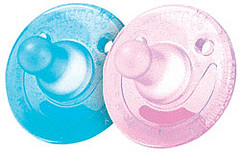 Children should not have high blood pressure. Period. Sure, teenage life can be stressful, and high blood pressure can be hereditary…but maybe there is another culprit.
Children should not have high blood pressure. Period. Sure, teenage life can be stressful, and high blood pressure can be hereditary…but maybe there is another culprit.
According to research conducted earlier this year, phthalates in plastics may be causing a rise in juvenile high blood pressure.
What are phthalates?
According to the Centers for Disease Control (CDC):
Phthalates are a group of chemicals used to make plastics more flexible and harder to break. They are often called plasticizers. Some phthalates are used as solvents (dissolving agents) for other materials. They are used in hundreds of products, such as vinyl flooring, adhesives, detergents, lubricating oils, automotive plastics, plastic clothes (raincoats), and personal-care products (soaps, shampoos, hair sprays, and nail polishes).
Phthalates are used widely in polyvinyl chloride plastics, which are used to make products such as plastic packaging film and sheets, garden hoses, inflatable toys, blood-storage containers, medical tubing, and some children’s toys.
How People Are Exposed to Phthalates
People are exposed to phthalates by eating and drinking foods that have been in contact with containers and products containing phthalates. To a lesser extentexposure can occur from breathing in air that contains phthalate vapors or dust contaminated with phthalate particles. Young children may have a greater risk of being exposed to phthalate particles in dust than adults because of their hand-to-mouth behaviors. Once phthalates enter a person’s body, they are converted into breakdown products (metabolites) that pass out quickly in urine.
How Phthalates Affect People’s Health
Human health effects from exposure to low levels of phthalates are unknown. Some types of phthalates have affected the reproductive system of laboratory animals. More research is needed to assess the human health effects of exposure to phthalates.
Levels of Phthalate Metabolites in the U.S. Population
In the Fourth National Report on Human Exposure to Environmental Chemicals (Fourth Report), CDC scientists measured 13 phthalate metabolites in the urine of 2,636 or more participants aged six years and older who took part in the National Health and Nutrition Examination Survey (NHANES) during 2003–2004. For several phthalate metabolites, results from the prior survey periods of 1999–2000 and 2001–2002 are also included in the Fourth Report. By measuring phthalate metabolites in urine, scientists can estimate the amount of phthalates that have entered people’s bodies.
While most common in people over age 50, 14 percent of obese teenagers now have high blood pressure (as defined as a systolic blood-pressure reading above 140 mm Hg). Largely connected with rising obesity rates related to diet, chemicals known to disrupt endocrine function, such as phthalates are also playing a significant role, cite the researchers.
“Phthalates can inhibit the function of cardiac cells and cause oxidative stress that compromises the health of arteries. But no one has explored the relationship between phthalate exposure and heart health in children” says lead author Leonardo Trasande, MD, MPP, associate professor of pediatrics, environmental medicine and population health at NYU Langone Medical Center.
Now, new research published this Wednesday in The Journal of Pediatrics suggests that certain types of phthalates could pose another risk to children: compromised heart health. Drawing on data from a nationally representative survey of nearly 3,000 children and teens, researchers at NYU Langone Medical Center, in collaboration with researchers at the University of Washington and Penn State University School of Medicine, have documented for the first time a connection between dietary exposure to DEHP (di-2-ethyhexylphthalate), a common class of phthalate widely used in industrial food production, and elevated systolic blood pressure, a measure of pressure in the arteries when the heart contracts.
What does this mean?
If you know there are hereditary factors for high blood pressure for your children, like there are for mine, diet (vegetarian) and exercise are key. Avoiding plastics is always a good idea. From BPA to phthalates, plastics are full of chemicals, or chemicals to replace chemicals, that are detrimental to our health.
It is hard to live a plastic free life in this day and age, but once you are aware, you can at least take the steps to eliminate exposure as much as possible.
Image:
![]() Some rights reserved by thesoftlanding
Some rights reserved by thesoftlanding
Leave a Reply